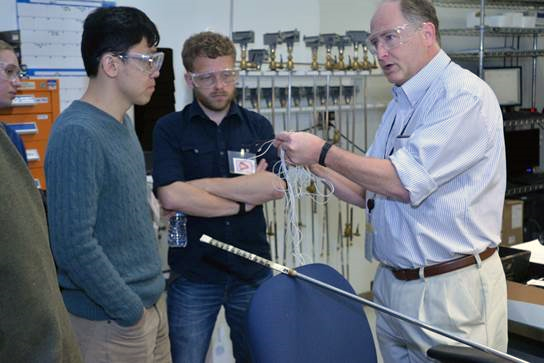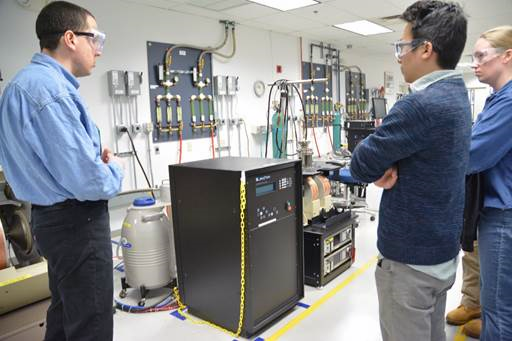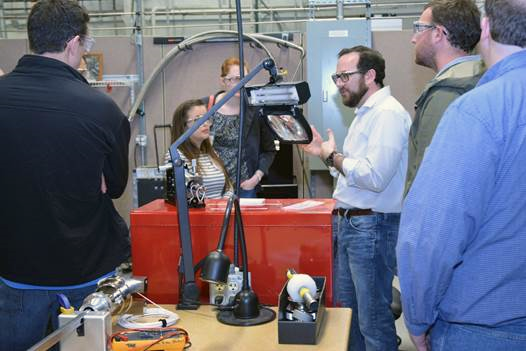Lake Shore’s team draws from a number of technical and scientific fields. In addition to physics, chemistry, and materials science, employees come to us also from the fields of electrical, mechanical, and software engineering. We are always looking for bright, innovative students who may one day like to join our team.
Recently, we hosted 18 Ph.D. students affiliated with The Ohio State University’s Center for Emergent Materials (CEM) who visited Lake Shore to learn more about career opportunities in the fields of cryogenics and electronic and magnetic characterization of materials. The CEM is heavily involved in understanding and controlling magnetism in novel materials and materials systems and on the exploration of emergent magnetic phenomena, so it’s no wonder that Lake Shore would be very interested in what the center’s doing. (And we’ve also collaborated with them. Researchers in the center’s NanoSystems Laboratory have used a prototype of our THz system for materials characterization, showing how temperature-dependent THz spectroscopies have proven useful in characterizing the electronic and magnetic properties of various novel materials – which has been helpful in our product development efforts.)
For many of the OSU students visiting Lake Shore, it was their first real taste of how their knowledge could potentially benefit the technology industry, as opposed to more traditional career paths in academia. They first heard from Brad Dodrill, VP of Sales and Senior Scientist at Lake Shore, who elaborated on his own journey at the company, where he started as a Research Scientist in 1984 while working towards his Master’s degree in Physics at OSU. During his 30-year tenure, he has held a variety of positions in R&D, manufacturing, product management, applications development, and finally, sales. Dodrill spoke about how all of these positions, as well as his position as Senior Scientist at Lake Shore, have given him the ability to communicate more effectively with Lake Shore’s diverse customer base and how these interactions with scientists in academia, national labs, and high-tech industry have molded and shaped Lake Shore’s technology roadmap. He told the students that what they accomplish in their careers is only limited by their own imaginations and work ethic, and he urged them to pursue a career path that they feel passionate about.
Next, the group met Lake Shore’s cadre of applications scientists, Dr. Scott Courts, Dr. Cosmin Radu, and Dr. David Daughton, who accompanied them on a tour of the company’s R&D labs.
Highlights from the R&D lab tour:



Interested in touring Lake Shore?
From time to time, Lake Shore hosts tours from university physics, engineering, and material sciences departments. Professors and administrators visiting central Ohio are also welcome to visit Lake Shore on their own. We’re always happy to take the time to explain how our products and expertise are enabling universities worldwide to advance science. So, if you or your group would like to visit Lake Shore, just e-mail us. We’ll see what we can arrange.
